It was our second birthday on March, 13. We grew up, became stronger, and had time to do many things. Now, we are ready to share our highlights and impressions for the year.
-
We prepared a map of public transport lanes and submitted the suggestions of 1,500 people to Minister of Internal Affairs Arsen Avakov >
-
Together with our partners, we looked into the quality of air in five industrial cities of Ukraine >
-
We supported rural communities, held a photo contest, and even organised an exhibition >
-
We located areas that would be at risk of being flooded because of the climate change >
-
Together with the leaders of Ukrainian mining cities, we learned from international experience of transforming regions affected because of closure of coal mines >
-
We went to Chernobyl, talked to ONUKA and opposed the further construction of new dangerous units at the Khmelnytskyi NPP >
-
We launched a petition for the transition to 100% renewable energy >
-
We developed our volunteer community >
You should not anymore be afraid of getting frostbite in your nose endlessly waiting for a bus. The traffic table displays seven minutes, and the bus indeed arrives in exactly seven minutes. You may sleep an hour longer instead of sitting in traffic jams. Your bus runs now on time, finally. It sounds fairy, doesn’t it?
We are committed to build reality from fairy tale. There are special lanes to ensure a comfortable, unhampered and regular traffic of the public transport. There are 19 public transport lanes in Kyiv with a total length of 35 km. However, they do not work. The reason for that is cars driving or parking on public transport lanes (if you have ever been in Peremohy Avenue or Saksahanskoho Street, you know what we mean).
Ecoaction’s volunteers went to the public transport lanes and noted cars driving or parking thereon. У гривневому еквіваленті це They counted 1,312 traffic offenders just in half an hour. . This is, in monetary terms, equivalent to UAH670,000, provided that each of the offenders pays a fine of UAH510. For instance, the amount of fines charged per a business day would be sufficient to recondition one kilometre of a motor road.
Legislative amendments introducing photo and video evidence cameras were passed in 2015. However, the law does not work just as the public transport lanes. We therefore engage with officials to have the law enforced. We show them and the public that this is important.
- In 2018, we collected 1,500 signatures on a petition to ensure an efficient operation of buses and trolleybuses in urban settlements and submitted the petition to the Minister of Internal Affairs;
- We developed an online-map of the Kyiv public transport lanes. It appears from the map that the number of such lanes is not sufficient and that they are arranged randomly;
- We arranged a theatrical performance outside the headquarters of the Ministry of Internal Affairs, demanding to install the photo and video evidence cameras on the public transport lanes, and submitted the petition signed.

Why is it important to us? Comfortable travels are not the only thing that we want. We want clean air, free space and less greenhouse gas emissions that cause global climate change. Switching private cars for more comfortable and rapid public transport should be the first step towards achieving this goal.
You may have seen pictures of heavy smog in Chinese metropolitan cities that often hide the sun. You may have even heard that a protective mask is one of the main pieces of local clothing. Do you know that polluted air kills more people in Ukraine than in China (and any other country in the world)?
Those are the findings of calculations performed by the World Health Organisation. In 2012, diseases caused by air pollution resulted in 120 deaths per 100,000 residents in Ukraine (China was ranked the tenth with 75 deaths). We do not know what we breathe, nor how it affects our health. We do not even know how to protect ourselves from it.
The national air monitoring system in Ukraine is outdated and is almost out of service. It is virtually impossible to check the amounts of emissions produced by large industrial businesses. To determine a baseline, Ecoaction, together with Arnika, a Czech non-governmental organisation, conducted its own survey in five industrial urban settlements in Ukraine.
An analysis of air can be tricky as its findings heavily depend on wind direction and weather conditions. We therefore evaluated soil and food samples as they provide a clear indication of contamination. The research was performed by experts from the Chemical and Technological Institute in Prague. In particular:
- we checked samples of sand from playgrounds and rivers in Kryvyi Rih, Dnipro, Zaporizhzhia, Mariupol, and Kharkiv for heavy metals.
- we analysed the levels of dioxins and other persistent organic pollutants in eggs in Kharkiv, Mariupol, and Kryvyi Rih. These pollutants accumulate in fat-containing products of animal origin and poison us from inside. They are not removed from a body and are inherited by the fetus from the mother during pregnancy.
In many cases, the sand contained heavy metals, such as arsenic and cadmium , which can cause cancer, affect the central nervous system and internal organs. The levels of dioxins (the substances that were used to poison one of our former Presidents) were found to exceed the tolerable limits by seven times for adults and by 12 times for children.
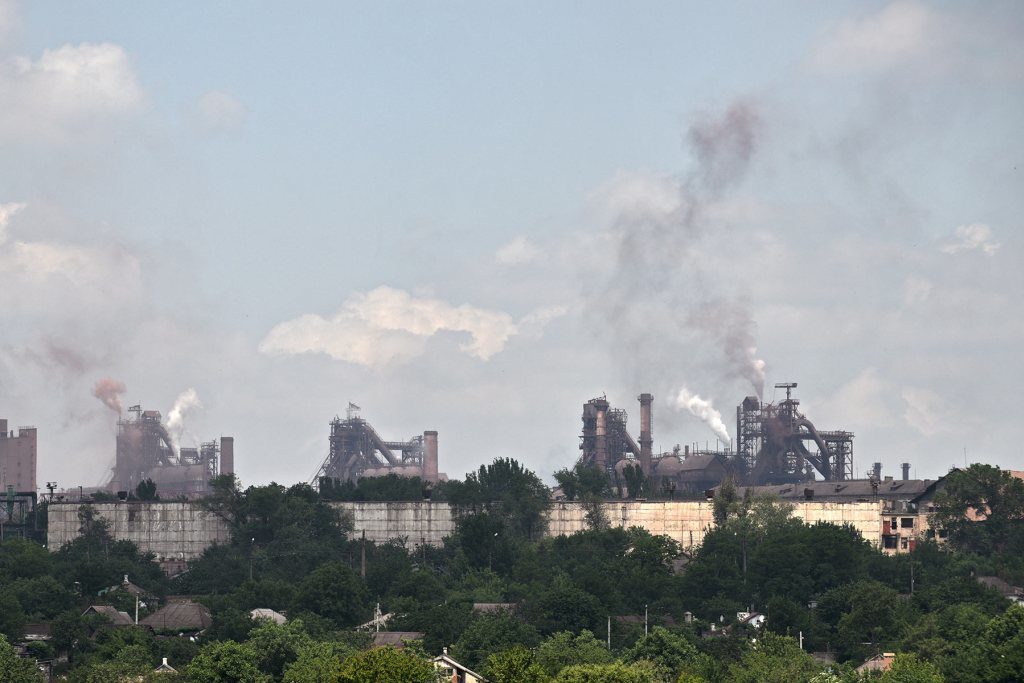
We support an efficient state monitoring of air quality, the installation of state-of-the-art pollutant filters at contaminating plants, and the implementation of the European Union environmental directives on industrial emission and air quality control. We want that people be always able to know (and understand) what they inhale with oxygen and that businesses start reducing their hazardous emissions.
In Ukraine, farms increasingly become factories, and picturesque villages turn into production sites. Intensive livestock farming inherently involves adverse environmental impacts and health risks. Such manufacturers consume significant amount of natural resources and, in the meantime, generate a huge quantity of waste polluting water, soil, and air. This is also one of the causes of global climate change and animal abuse.
In 2018, a project on monitoring the quality of water near livestock breading complexes, as initiated by the active community of the Shulhivka Village in the Dnipropetrovsk Region, was completed. It is near this village that, against the will of the community, a mink breeding farm was built in 2014-2015. During three years, the locals and environmental laboratory experts analysed the quality of water from wells, water channels and streams around the village. Monitoring unveiled that the quality of ground waters, surface waters and water in wells is continuously deteriorating with increased nitrate concentrations, which will make it unsuitable for use in a couple of years.
Last year, Ecoaction assisted rural communities in the Vinnytsia region with submitting their complaints against investment projects near their villages to the European Bank for Reconstruction and Development (EBRD) and the International Finance Corporation (IFC). The representatives of the parties started negotiations that are expected to help ensure compliance with necessary environmental and social standards, and to eventually address the adverse effects for the locals and environment.
We promote sustainable rural development through the establishment of small farms and cooperatives as a healthy alternative to giant businesses. To remind people (and ourselves) what a real village could and should be like, Ecoaction held its second photo contest titled “Village Postcard”.
In autumn 2018, we received more than 350 pictures from 100+ contest participants telling us about small farms and where useful and tasty products come from, people and communities who are not afraid of taking new initiatives, difficult working and living conditions of villagers, and changes in natural ecosystems caused by unsustainable farming.
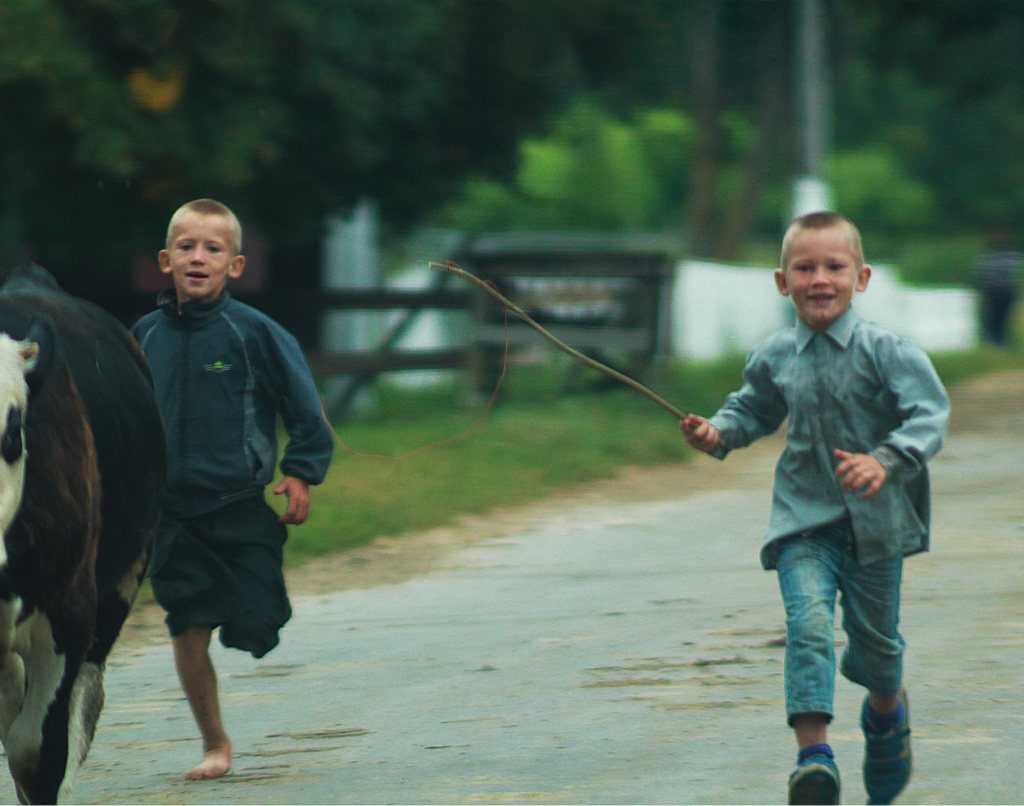
The judges of the contest selected best twenty pictures that were included in the exposition titled “Village Postcard.”
Although this term may sound abstract, the climate change has quite tangible consequences. These include more frequent floods, droughts, and hurricanes. This is also about extreme heat recorded all over the world. Such consequences also involve hunger due to droughts and wars for access to continuously depleting resources. They include reduced biodiversity, melting glaciers, and coastline flooding due to sea level rise. They bring abnormally heavy rains flooding underground passages in Kyiv and windstorms interrupting electricity supply to hundreds of settlements throughout Ukraine.
Does it still sound unconvincingly? The glaciers are far away, the stores are full of foods, and one can stay home if it rains heavily, right? Are you of the opinion that we should not care about the global climate change? We have got bad news for you.
We, together with scientists and volunteers, projected a likely sea level rise due to climate change and analysed what the Ukrainian coastline will look like in 2100. A unique project tilted “The Water is Coming” shows that Ukraine is exposed to a number of risks:
- 34 Ukrainian cities are at risk of partial flooding;
- 62 villages, 660 environmentally hazardous facilities, 200,000 hectares of agricultural land and 98 conservation areas will be flooded.
- 75,000 Ukrainians may become displaced persons due to the flooding.
- the sea ports of Odesa, Mariupol, Berdiansk, Kerch, and fifty other settlements may disappear
- the frequenters of Zatoka, Koblevo, Zaliznyi Port, Berdiansk, Lazurne, and other places are at risk of losing their favourite resorts.
- • The UNESCO World Heritage will be left without the Chersonesos Taurica
We developed an interactive map reflecting the sites that will be flooded unless we take action. Using this map, one can see all the risks with their own eyes.
Ukraine, together with the entire world, signed the Paris Agreement of 2015 and thereby committed to cut greenhouse gas emissions and, accordingly, to phase out fossil fuels.
To combat climate change, we support the development of green economy and the coal phase out. Thousands of miners (and not only miners) will lose their jobs and livelihoods, and the coal regions will, in fact, be deprived of their economy. It does not sound good enough, right? We are concerned, too.
Since 2004, Ukraine has liquidated 68 coal mines with 19 other mines being dissolved or making preparations for their dissolution. The mines were closed without any contingency plan for the regions. Consequently, they faced economic decline and mass migration.
Park City, Utah, the United States, had a similar experience. In the 1970-s, the city almost became uninhabited after the curtailment of the mining sector that was the key driver for the entire city’s economy. The situation had been like that until the city became home to the world-famous Sundance Film Festival, which annually earns $ 80 million for the local budget.
For the avoidance of doubt, we do not suggest that a film festival be organised in Vuhledar (but why not?). We support just transition for former mining regions, including:
- employment and retraining of employees dismissed;
- social and economic reconversion of territories; and
- raising investments to support new types of economic activity.
We support the establishment of a meaningful dialogue between government and local authorities, non-governmental organisations and the population of the mining regions to support a new replacement activity. The locals according to their needs and capabilities should determine the direction of this activity. One does not simply install wind turbines throughout the region. In addition, not everyone wants to organise film festivals.
- In July 2018, we went to Donbas, where we met the managers of six mining cities and local non-governmental organisations.
- In September, we helped organise a regional workshop on energy efficiency and renewable energy for the representatives of the cities.
- In October to November, a large delegation representing the mining cities visited Germany, where they saw with their own eyes the positive experience of transforming mining regions and got inspiration to continue their work.
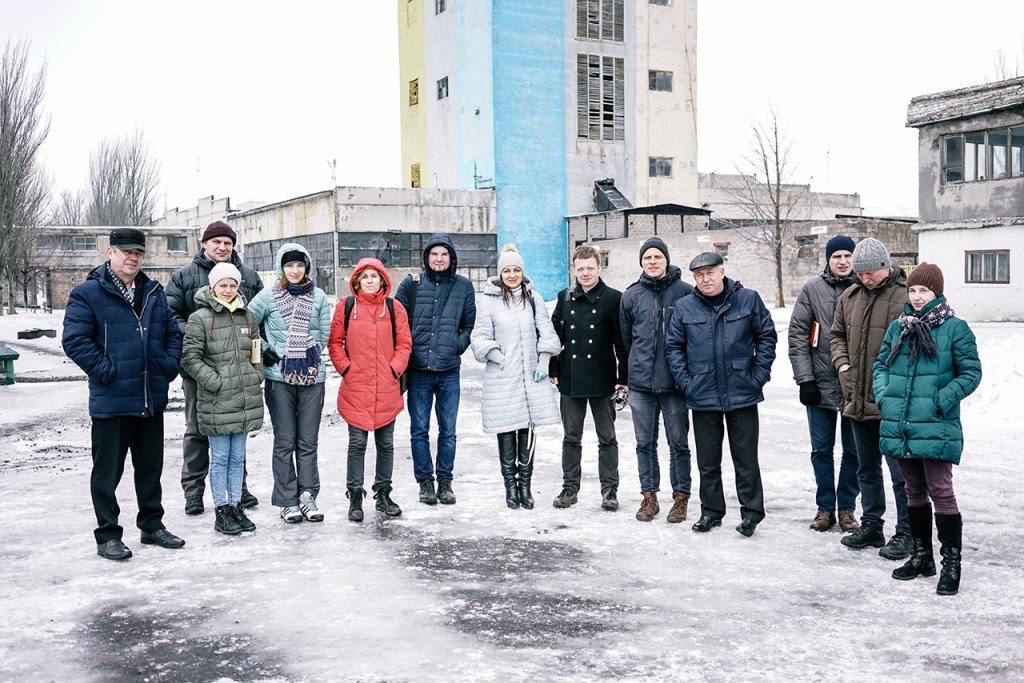
We, together with a non-governmental organisation Germanwatch (Berlin/Bonn, Germany) and Luhansk Region Human Rights Centre Alternative (Donbas/Kyiv, Ukraine), help stakeholders interested in the mining regions of Ukraine develop recommendations and measures for that transition. We want to preserve our planet through the coal phase out. But we also want this process to be as smooth as possible for the economy and for the people.
Nuclear power is now being promoted as an alternative to the dirty coal industry. People say that nuclear is clean, cheap, and safe. However, the residents of the territories suffered from the Chornobyl Disaster would object to this statement.
Only few people say that NPPs release radiation in quantities sufficient to cause cancer in neighbouring urban settlements. Those in authority prefer to keep silent about the fact that the fuel used for the Ukrainian NPPs is produced in Russia, and, after use, goes back to Russia for processing and storage purposes (at our cost, of course). And, certainly, they never mention that nobody knows what to do with spent fuel that will remain radioactive for hundreds of thousands of years. The only way we can deal with the problem, is to keep nuclear waste at storage sites, hoping that someone after us will deal with it.
Obsolete units of the Ukrainian NPPs cause additional risks of accidents, radioactive waste and increased dependence on the Russian fuel. Therefore, we continue to support the abandonment of plans of building new nuclear units and lifetime extension of the old ones.
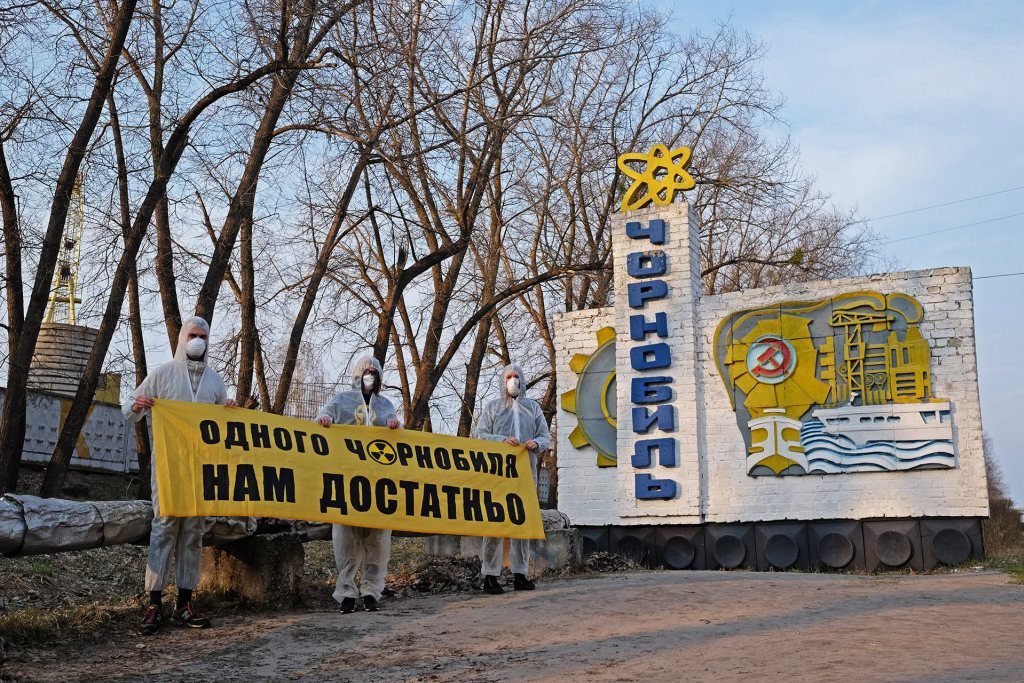
- We visited the Chornobyl Exclusion Zone, where we conducted a campaign titled “One Chornobyl Is Enough for us”.
- We talked to Nata Zhyzhchenko (ONUKA) about how the Chernobyl accident affected her life and the creative work of her band, the greatness of the confinement, the life of the residents of the Exclusion Zone, and the importance of being aware.
- We actively explained to the public the real price and risks of further construction of Units 3 and 4 of the Khmelnytskyi NPPs in the social and mainstream online Media.
- We joined public consultations on the environmental impact assessment report.
- We continue to work with officials and MPs to convince them to abandon their plans to build the nuclear units.
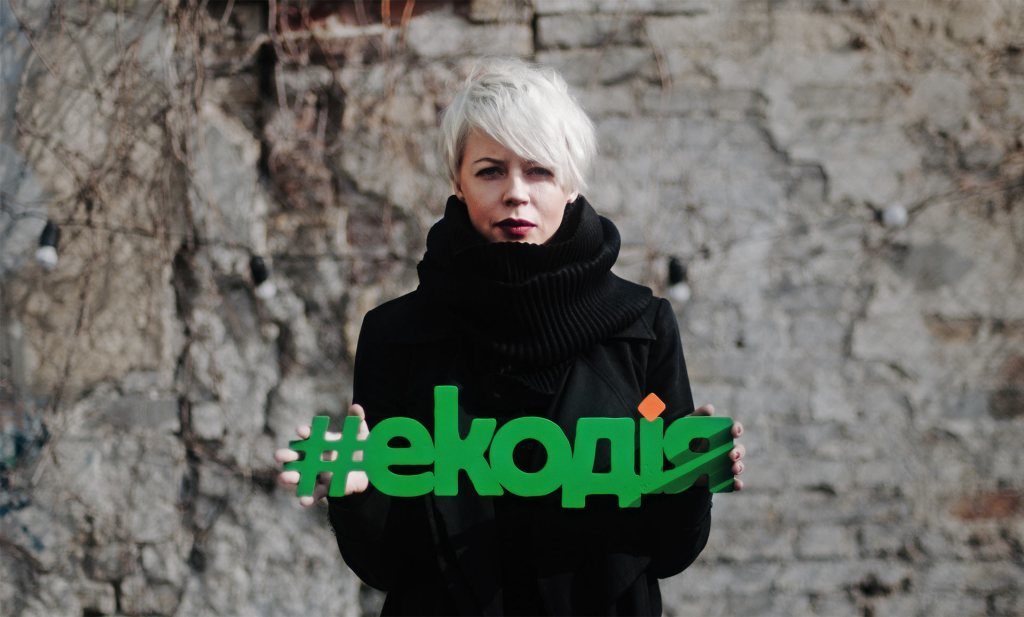
The government has ‘ambitious’ plan to complete the construction of two new units at the Khmelnytskyi NPP. They were designed in the 1970’s. The construction was started and suspended in the late 1980’s, with the most recent assessment of the incomplete structures conducted more than ten years ago. The reactors for those units can be produced by either Russian Atomstroiexport, the contract with which was terminated by Ukraine in 2015, or a Czech company owned by a Russian entity on the Ukrainian and US sanction lists. It follows that, whatever the case, this project will only increase the dependence of Ukraine on Russia.
Finally, nuclear plants adversely affect the environment and pose risks of new accidents. The environmental impact assessment report does not address all the concerns that Ecoaction’s members and volunteers raised at the meeting held on the premises of the Ministry of Ecology and Natural Resources of Ukraine and in our letters.
We oppose nuclear. We oppose coal. But what do we suggest instead?
We are committed to the transition to renewable energy (RES). The wind turbines does not cause global warming. The solar energy used by solar panels will remain inexhaustible for billions of years.
With the latest technologies, clean energy becomes cheaper than coal. Unlike NPPs, there is no need to dispose of any components of a renewable power plant. Instead, they can be recycled or reused with new stations.
Recent research shows that Ukraine can reach 91% RES by 2050. All we need is to start. Our partners and we therefore launched a petition requesting that politicians:
- Provide, in political programmes of their political parties, for their commitment to improve the energy efficiency and to ensure that Ukraine shift to 100% RES by 2050.
- Develop a legislative framework to allow average Ukrainian citizens to enjoy the benefits of clean energy.
- Allocate more funding from the state budget to support programmes for energy efficiency, RES development, and environmentally friendly public transport.
- Refuse the plans to complete the construction of the Khmelnystkyi NPP or to build any new nuclear or coal generating facilities.
We are developing a community that cares about environmental issues and seeks to resolve them. We are shaping a culture of engagement in the environment protection and conservation through environmental volunteering, eco-activism and financial donations.
Engaging with Ecoaction means gaining experience of creative ecological activities, meeting like-minders, acquiring new knowledge, establishing interesting contacts, being involved in the environmentalisation of Ukraine, and supporting local activists who fight for the right to a clean environment.
We are open to a pro bono cooperation with creative and PR agencies, law firms, IT companies, etc. In return, you can ask that Ecoaction’s experts visit your university, school or company to deliver a special lecture or to provide an online training.
We are also developing our volunteer community. We operate in Kyiv, Ukraine, but we are welcoming people from all over the world. If you want join us – contact us and we`ll together figure out the convenient way to be helpful to each other.
Сontact us: info@ecoact.org.ua
Сontact us: info@ecoact.org.ua
